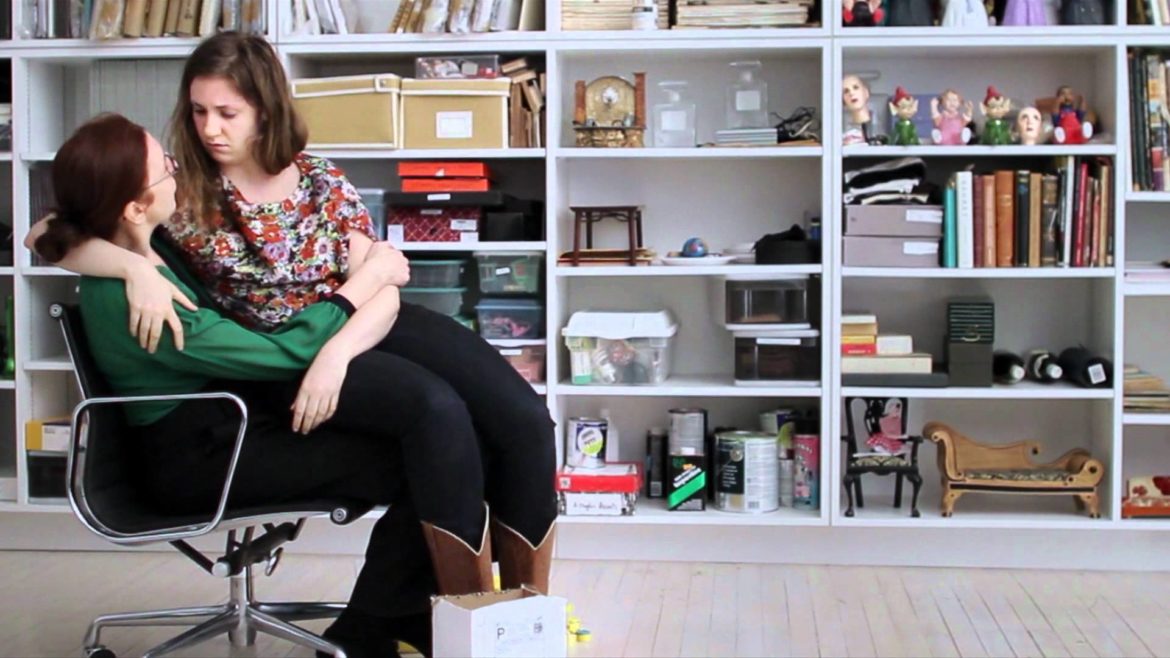I have never seen a full episode of Girls.
I say this at the outset not to demonstrate my hipness or lack thereof, but as a statement of fact that’s relevant here.
Online or in print, virtually all discussions about the work of Lena Dunham – noted screenwriter/director/actress/TV star/author/astronaut (probably) – seem to end up being about Dunham herself. There are legitimate reasons for this (e.g. much of that work is explicitly self-referential, so talking about it necessarily involves talking about her) and others that are less so, ranging from the unfair to the outright sexist (she’s a trust-fund kid who just lucked into fame, she only gets attention for various states of undress, her body is the wrong kind of body, ew, put some clothes on, etc.). None of the latter have anything to do with the quality or significance of, you know, her art, but they seem to come up invariably for some reason. (Note: that reason is patriarchy.)
So, with no prior experience of her work, I came to Tiny Furniture, her first major film, and Creative Nonfiction, its more low-budget dry run from a year prior (included on the Criterion release), without significant baggage, or at least without any rigid viewpoint honed through snarky internet debate. And I made this shocking discovery: her early, pre-Girls stuff is … okay.
Let’s start with Tiny Furniture, the more well-known and widely distributed of the two. Dunham plays Aura, a just-out-of-college child of privilege who’s moved back in with her wealthy photographer mom and younger sister. Like many a young 20-something, she’s adjusting to post-college life, trying to figure out what she wants to do while being pressured from all sides to figure it out quicker.
Like young real-life Dunham, her heart is in making and watching goofy YouTube videos, but, in a try for respectability, she takes a job as a “day hostess” at a restaurant that isn’t open during the day (one of many attempts at absurdist comedy that never really work), hangs out with some friends while selfishly dropping others, gets into screaming matches with her sister (who resents her taking up space in the enormous house), and makes reckless sexual decisions with awful dudes. The script is heavy on banter that recalls Noam Baumbach’s Kicking and Screaming (a good thing) and visual jokes that recall Zach Braff’s Garden State (one of the worst things in the world), but the main focus is on Aura at a crossroads, trying and mostly failing to grow up.
The camerawork is mostly pretty uninspired, favoring hangout-movie long takes and groan-worthy visual puns – to name two examples, her mom tells her to get something from “the white cabinet” (the house is basically a network of white cabinets) not once but twice, and she has a sexual encounter with a tentacle-rape porn enthusiast in a section of abandoned pipe in the street (how low can she go!). But this is somewhat offset by the occasionally incisive script and her performance, which is often awkwardly affecting and genuinely melancholy. Tiny Furniture plays exactly like the kind of film people see at festivals and say it “shows promise” (something the success of Girls would seem to bear out).
Creative Nonfiction is essentially a first stab at the themes that run through Tiny Furniture, shot on the cheap a year prior. To my mind, it’s actually the better film. It focuses on the decidedly minor trials and tribulations of college student Ella (as opposed to Aura, both of them presumably pretty close to Lena) and her friends.
Some of Tiny Furniture’s key players showed up here too, playing versions of themselves (or at least versions of their later characters), and the film jumps all over the place, dealing with the tenuousness of college relationships and romantic betrayal, the awkwardness of sex, and a young woman trying to figure herself and the world out. The film, especially the sections shot in 16 mm and some of the seemingly improvised dialogue, feels vital and real, and it’s far more self-deprecating – the narrative is intercut with witty depictions of Ella’s developing screenplay, for instance, which is pretty hilariously bad and not at all thought through (her main focus seems to be how her protagonist’s hair should look in different scenes, while she has no explanation for why people show up when they do).
Ella feels far more lived-in than Aura ever does, probably because Dunham is simply playing a version of herself at that time: she’s sharp, vulnerable, and awkward, and, by cycling through so many styles and cinematic influences, the film is ambitious but never gets bogged down in the weeds of Garden State-level symbolism. If it has the trappings of an art project, that’s because it is, and that’s not necessarily a bad thing. Dunham’s much-loved and much-hated fearlessness about self-representation is already apparent, and it works better in this ramshackle, self-aware context than when she actually got funding for a more polished picture.
These are both visions of a particular kind of young adulthood, as relayed by a filmmaker who is all-too-aware of how she will be perceived and eager to challenge the notion that she has no place on the screen, or that her minor experiences and navel-gazing aren’t worth relaying. Sometimes, especially in Tiny Furniture, the approach doesn’t work, but I think it does more often than not. And with Creative Nonfiction especially, it’s clear she’s an artist with something to say. Take to the countless comment sections and argue about it, dismiss it, laud it, valorize it, or do whatever else you like, but that’s a valuable and worthy thing. Maybe I should check out Girls sometime after all.

